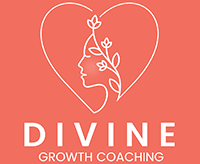Knowing the Difference: Therapist vs. Life Coach
Many people when struggling with various topics in life understand that they need another person's professional advice to help them see the light at the end of the tunnel. Many times these individuals that are seeking support are unsure who is best suited to help them in the process. Normally, the options are reaching out to a Therapist or a Life Coach for guidance. However, it is a common misunderstanding identifying what each professional actually does in their practice. In this article, we are going to go over the specifics of each role and identify common areas of help each provides.
Although life coaching and therapy do share commonalities that aim to implement positive changes in clients' lives, the work and processes of therapists and life coaches are very distinct.
Therapist
A Therapist is a licensed professional who has obtained a master’s degree or above in counseling or psychology. They have successfully completed 3,000 hours of supervised practice and have ethical codes that they are required to acknowledge and stand by. They are required to maintain your privacy and confidentiality at all times during the length of your sessions.
Therapists provide therapy, otherwise known as counseling or psychotherapy. These sessions are normally based over a long period of time which allows the client to slowly work through different areas that have been identified in initial assessments. Therapists are healthcare professionals that have the authority to diagnose clients and prescribe prescription medicine. In short, therapy focuses on resolving problems that have occurred in the past and make a goal to create a more positive future.
Therapy is appropriate in situations like:
- Severe depression
- Suicidal thoughts
- Behavioral or emotional disorders
- Recovery from past traumas
- Anxiety
- Loss of a loved one
Therapists analyze their client’s past as a tool for understanding present behaviors and work together to obtain a healthier future.
Life Coach
Life Coaches normally complete various courses, hands-on training, and certificate programs before opening the doors to their resourceful practices. Many complete dozens of hours of coaching before becoming a certified Life Coach professional. Life Coaches do not have a mandated or regulated requirement of education to begin practicing. It is solely up to each specific coach to decide the extent of their training and focus areas. However, many Life Coaches go above and beyond the minimum to be able to serve their clients as best as possible. A lot of Life Coaches come from a familiar place and can relate to their client's needs. Many Life Coaches actually become coaches because they have overcome certain obstacles in their own lives. Experiencing their own transformation commonly ignites their desire to help others do the same. This gives clients that additional benefit by also working with a professional that has personal knowledge and experience in certain areas.
A great way to look at life coaching is as having your own personal advocate. Your Life Coach is there to see you succeed and to assist in creating a life that you love to live. Life coaching can be long-term or short-term, depending on the client and their specific needs. Life coaching is known to be able to provide a faster turnaround time of results because action plans are implemented from the beginning. In life coaching, a client works with a coach, who is not a healthcare professional, in order to clarify goals and identify obstacles and problematic behaviors in order to create actionable items to achieve the desired results. The process of life coaching takes the client’s current starting point as an acceptable neutral ground and is more action-based from that point onward. A life coach enables the person receiving treatment to take control of their life and take action to steer it toward their goals in a more positive way.
A life coach can help you with many things from like:
- Prioritizing and organizing your life
- Obtaining a healthy work/life balance
- Learning how to express your emotions and build self-esteem
- Improve performance
- Increase confidence
- Develop your potential
- Help you with solutions, obtaining clarity or direction
- Achieve personal or professional goals
Life coaches take pride in providing their clients with the resources they need to succeed. This could be advice, suggestions, accountability, encouragement, being objective and always non-judgmental. They measure their client’s success with key performance indicators and specific behavioral outcomes and goals. Coaching is a way of developing a clear and specific desired outcome, and laying out a concise plan of action to successfully be achieved.
Conclusion
Therapists and Life Coaches share one common goal and that is to help their clients. However, understanding the different support these professionals provide their clients is the first step in identifying what type of guidance is right for you. Will a Therapist help you in all the areas you need? Would a Life Coach be better suited? The decision is yours. We hope this overview of each role will help you in the beginning stages of your journey to obtain the support and guidance needed in your life.
